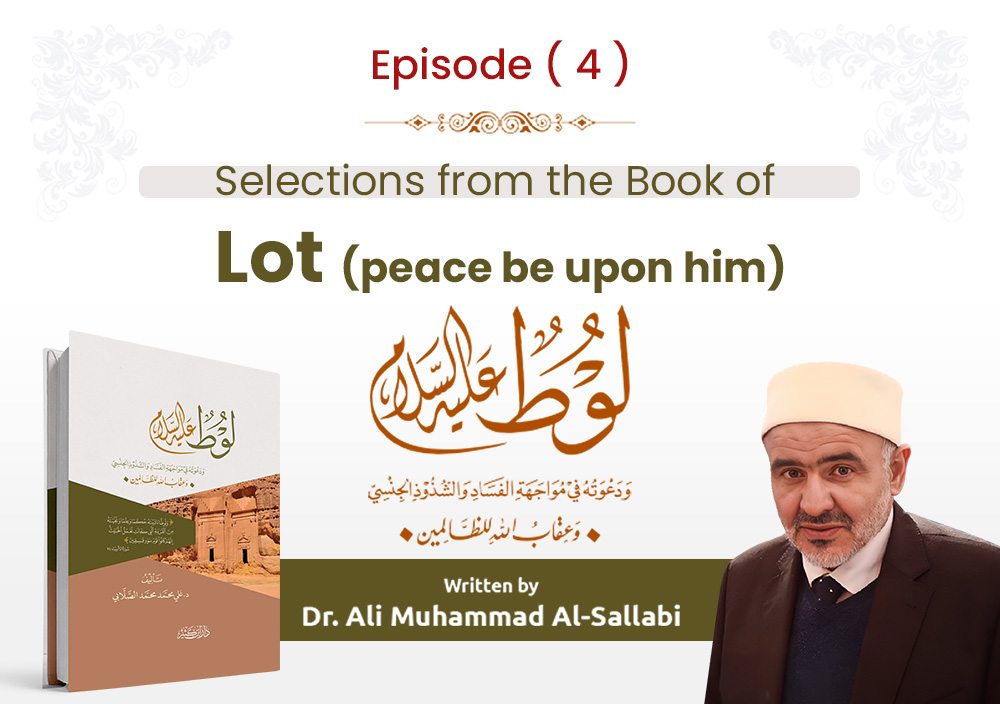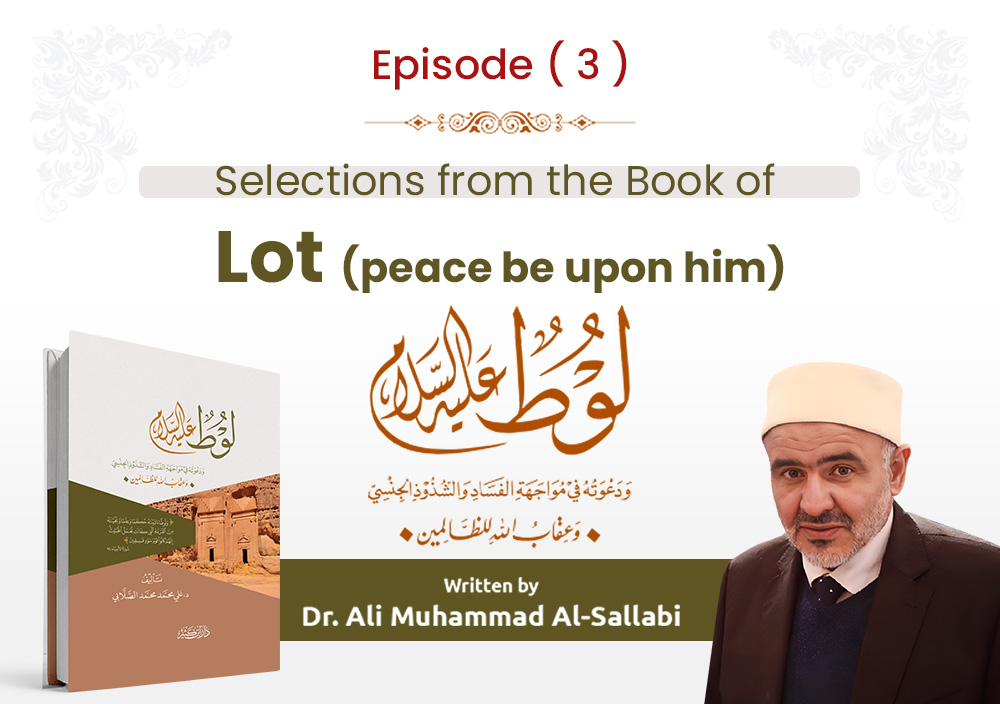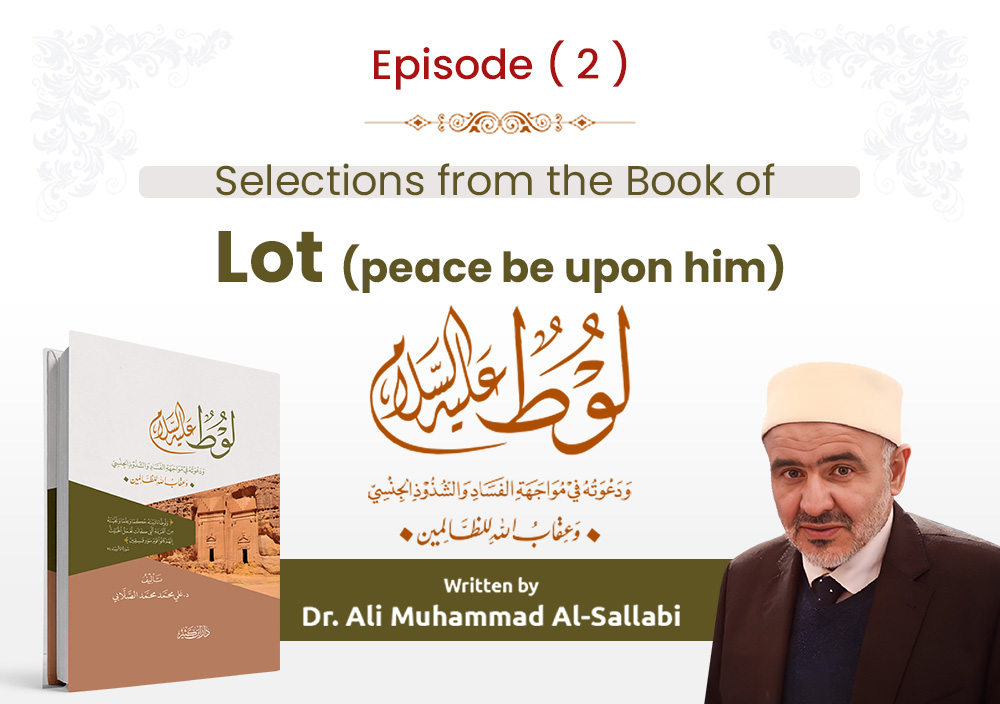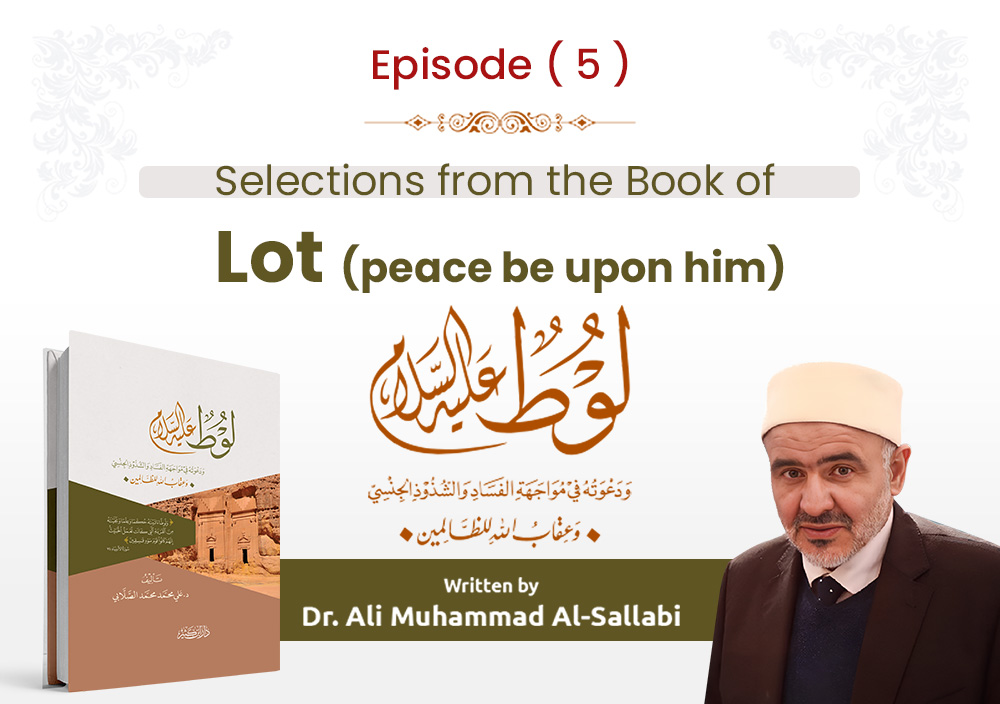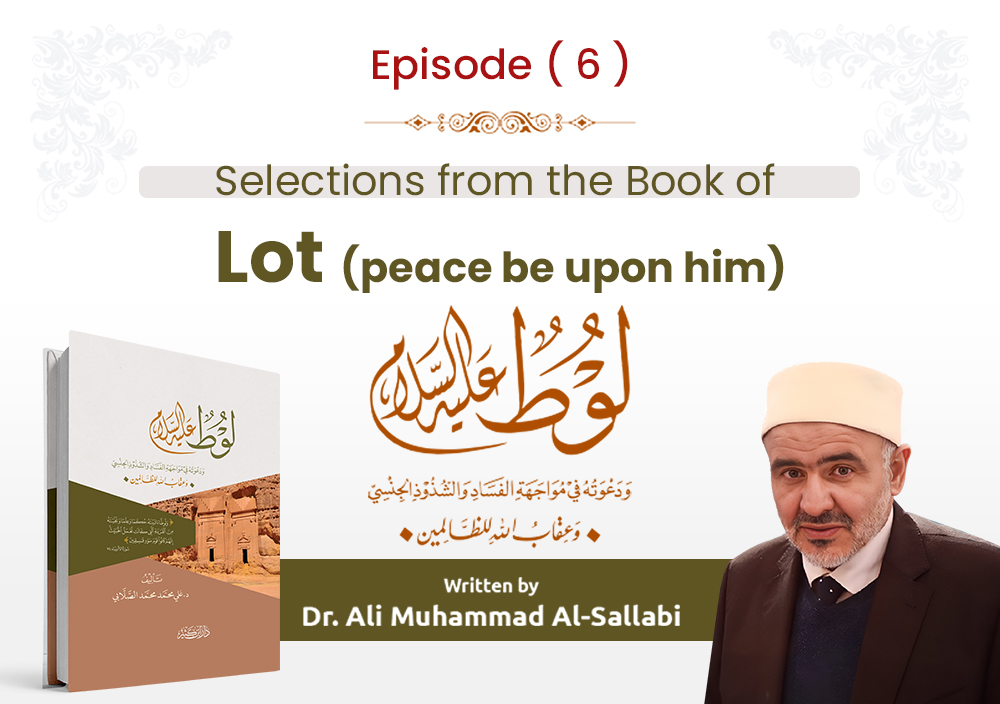The birth of Lot (peace be upon him) and his era; P.2
Selections from the Book Lot (peace be upon him) and his Mission in Confronting Corruption and Sexual Deviance …
Written by Dr. Ali Muhammad al-Sallabi...
Episode (4)
A- Marriage and family:
Marriage in the time of Prophet Lot (peace be upon him) in Iraq was based on several principles and customs. It required an explicit written contract, attested by witnesses. Marriage was only recognized through this contract, which necessitated the consent of both the bride's and groom's parents. The parents played a significant role in selecting a suitable spouse for their child. Before finalizing the marriage agreement, the suitor would send the initial dowry proposal (known as "Tarkhanu") to the bride's father, followed by the payment of the remaining dowry afterward. If the suitor initiated the marriage and then backed out, he had no right to reclaim the dowry. However, if the rejection came from the bride's family, they were obliged to return all that the groom had provided.
The Babylonian society allowed premarital sexual relations, a practice known as "sacred prostitution" in Babylon. According to Will Durant, "It was customary for the Babylonians to engage in a significant amount of sexual activity before marriage. It was not uncommon for both men and women to engage in unauthorized relationships (trial marriages) that could be terminated at the will of either party".
Laws and traditions allowed a wife to present her slave-woman to her husband in order to have children, and the woman would gain her freedom after bearing children. Individuals were permitted to adopt male or female children through a written contract between the adopter and the caregivers, subject to several conditions:
- The adopter must fulfill his obligations towards the adopted son, treating the adopted child as one of his natural children.
- The adoptive father must educate and enlighten the adopted son as if he were his biological child.
- The adoptive parent should include the adopted child in inheritance similar to his biological children.
In return, the adopted son was required to obey and respect the adoptive parents as if they were his biological parents. If he disrespected or denied them, they had the right to discipline him, including physical punishment or even enslavement.
B - Celebrating Festivals:
Among the social practices present in the time of Prophet Abraham (peace be upon him) was the celebration of festivals and religious and ceremonial gatherings. One of the most significant festivals was the festivals of the gods, where each deity had their own religious celebrations. They also celebrated a major festival at the beginning of each new year, inviting all the gods to participate. People from cities, including men, women, and children, would gather for the festivities to honor their gods with prayers, rituals, invocations, sacrifices, and other religious ceremonies, particularly to their chief deity, Marduk. These rituals would often continue for several days.
Perhaps the festival to which the people of Abraham (peace be upon him) went out and invited him to join them, but he (peace be upon him) did not respond to their invitation. Instead, he took the opportunity of their absence to go to their temple and destroy their idols, as mentioned in the Holy Quran: {Then he turned to their gods and said, "Do you not eat? (91) What is [wrong] with you that you do not speak?" (92) And he turned upon them a blow with [his] right hand (93)} [As-Saffat: 91-93].
C- Educational life:
Education during the time of Lot (peace be upon him) was available, and schools associated with temples were widespread, teaching people various sciences such as reading and writing. They used to write with reed pens on wet clay tablets. Additionally, people in his era were interested in astronomy, evidenced by the construction of tall towers to observe celestial bodies, aiding them in predicting the future and speculating about people's destinies.
Among the sciences prevalent during the time of Lot (peace be upon him) was the science of arithmetic. People had a great interest in this science to understand numbers and perform various calculations. They used to store books in temples and royal palaces alongside their official documents, indicating the importance people in Prophet Lot's era placed on education. After completing their schooling, they would often join the service of temples and royal palaces.
From the foregoing, we can summarize the social environment in the time of Prophet Abraham (peace be upon him) with the following points:
- The social environment during the time of Lot (peace be upon him) was characterized by a deep and creative civilization, with its own legislations and laws governing the social affairs of people.
- The social environment of the community during the time of Lot (peace be upon him) was marked by a material civilization, where they excelled in astronomy, constructed tall observatories to monitor the planets, and also devoted attention to the study of arithmetic, reading, writing, and other sciences. This clearly indicates their prosperity and comfortable living conditions.
- The social environment during the time of Lot (peace be upon him), which indeed overlaps with the era of Abraham (peace be upon him), was also characterized by moral corruption in all its forms. They indulged in the depths of depravity, social promiscuity, and moral decay.[1]
- Religion was separate from ethics and values, distant from life and reality. Committing immoral acts openly during the day was considered acceptable, and some individuals even linked promiscuity with religion, considering it a means to gain favor with the gods.[2]
About this, Durant says, "Every Babylonian woman should sit in the temple of love once in her life and have intercourse with a stranger. Sacred prostitution persisted in Babylon until it was abolished by Constantine around 325 BCE. Alongside it, there was a prevalent civil order in the drinking halls managed by women, and it was customary for Babylonians to have extensive sexual relations before marriage".[3]
This provides a concise snapshot of the situation during the time of Abraham (peace be upon him), illustrating the stark contrast between his call for the elevation of faith and monotheism and the prevalent ignorance and sins among the people.[4]
D- Political life:
Egypt and Babylon were two flourishing states in ancient times, where the most advanced civilizations of that period thrived. The land of Canaan, which includes modern-day Palestine, Lebanon, Jordan, and parts of Syria, was influenced by the outcomes of wars and conflicts between these two states, with much of its population falling under their sway. Babylonian artifacts suggest that Babylon held sway over the land of Canaan in the third millennium BCE. As a result, the civilization of the Canaanites was significantly influenced by Babylonian culture.
Some historical sources mention that Abraham (peace be upon him) was born during the reign of Nimrod, the son of Canaan, the son of Cush, the son of Ham, the son of Noah. Nimrod was described as a tyrannical and oppressive ruler who arrogated himself as a deity to his people, who obeyed him, in addition to their worship of idols and statues.
It's natural that the ruler or king of such a state, being the mighty despot of his time, would easily issue a command to burn Abraham, as mentioned in the Holy Quran: {They said, "Burn him and support your gods - if you are to act"} [Al-Anbya: 68].
Why not? considering his claim to be the giver of life and death, as mentioned in the Holy Quran: {he said, "I give life and cause death"} [Al-Baqarah: 258].
Episode references:
- Ali Muhammad al-Sallabi, Lot (peace be upon him) and his Mission in Confronting Corruption and Sexual Deviance, pp. 35-40.
- The Story of Civilization, Will Durant, Dar Al-Jeel for Printing, Publishing and Distribution, 1st edition, 2013 AD, 1/231.
- The ancient history of the Arabs and the prophetic mission, ancient Iraq, Dr. Saleh Ahmed Al-Ali, p. 192.
- Extinct Imposed religions, Muhammad Al-Araibi, Dar Al-Fikr Al-Lubani, 1995, p. 89.
- Abraham Khalilullah, peace be upon him, Ali al-Sallabi, Dar Ibn Kathir, first edition, 2022 AD, pp. 67-70.
- Comparative Religions "Judaism", Dr. Ahmed Shalabi, Egyptian Nahda Library, Cairo, 9th edition, 1990, p. 44.
- History of al-Tabari, History of the Messengers and Kings, 1/142.
For further information and review of the sources for the article, see:
The Book of ‘’Lot (peace be upon him) and his Mission in Confronting Corruption and Sexual Deviance’’ on the official website of Sheikh Dr. Ali Muhammad al-Sallabi:
[1] Abraham, peace be upon him, in the scriptures of the Jews, presentation and criticism, p. 74.
[2] Abraham, peace be upon him, and his calling in the Qur’an, Ahmed Al-Baraa Al-Amiri, p. 46.
[3] The Story of Civilization, 2/299.
[4] Abraham, peace be upon him, and his calling in the Holy Qur’an, p. 46.


